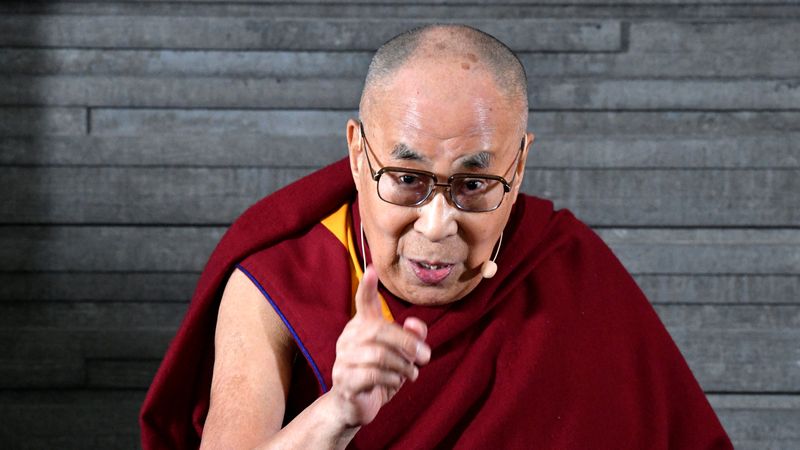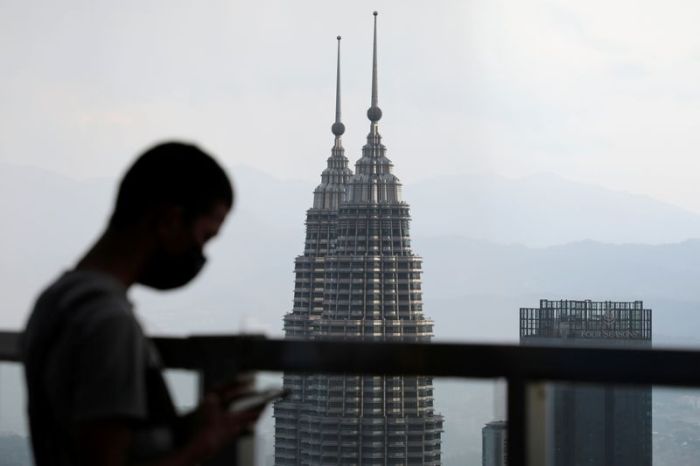TOKYO (Reuters) – Tibet’s spiritual leader the Dalai Lama criticised the leaders of China on Wednesday saying they “don’t understand the variety of different cultures” there and there is too much control by the main Han ethnic group.
But he also said he had nothing against “Chinese brothers and sisters” as fellow humans and he broadly supported the ideas behind Communism and Marxism.
The 86-year-old Dalai Lama, taking part in an online news conference anchored in Tokyo, was answering a question about whether the international community should consider boycotting the Beijing Winter Olympics over the suppression of minorities, including those in the western region of Xinjiang.
“I know Communist Party leaders since Mao Zedong. Their ideas (are) good. But sometimes they do much extreme, tight control,” he said from his base in India, adding he thought things would change in China under a new generation of leaders.
“Regarding Tibet and also Xinjiang, we have our own unique culture, so the more narrow-minded Chinese Communist leaders, they do not understand the variety of different cultures.”
Noting that China consisted not only of ethnic Han people but also other, different, groups, he added: “In reality, too much control by Han people.”
China seized control of Tibet after its troops entered the region in 1950 in what it calls a “peaceful liberation”. Tibet has since become one of the most restricted and sensitive areas in the country.
Beijing regards the Dalai Lama, who fled to India in 1959 after a failed uprising against Chinese rule, as a dangerous “splittist” or separatist. He has worked for decades to draw global support for linguistic and cultural autonomy in his remote, mountainous homeland.
Chinese foreign ministry spokesperson Wang Wenbin, asked at a regular press briefing on Wednesday about relations with the Dalai Lama, referred to “an out-and-out separatist political group”.
‘QUITE DELICATE’
The Dalai Lama said he broadly supported the ideas of Communism and Marxism, laughing as he related an anecdote about how he once thought of joining the Communist Party but was dissuaded by a friend.
When asked about Taiwan, the centre of increased military tension in the region, he said he thought the island was the true repository of China’s ancient culture and traditions since on the mainland it was now “too politicised”.
“Economically Taiwan gets a lot of help from mainland China,” he said. “And culture, Chinese culture, including Buddhism, I think mainland Chinese brothers and sisters can learn a lot from Taiwanese brothers and sisters.”
Though the Dalai Lama said he had no plan to meet China’s leader, Xi Jinping, he said he would like to visit again to see old friends since “I am growing older” – but would avoid Taiwan since relations between it and China are “quite delicate”.
“I prefer to remain here in India, peacefully,” he said, praising it as a centre of religious harmony – despite complaints from Muslims in recent years.
In the end, though, he said believed all religions had the same message.
“All religions carry the message of love and use a different philosophy of views. So now the problem (is) the politicians, in cases some economists … use this difference of religion. So now, religion is also politicised – so that is a problem.”
(Reporting by Elaine Lies and Antoni Slodkowski; Editing by Christian Schmollinger, Robert Birsel)
























